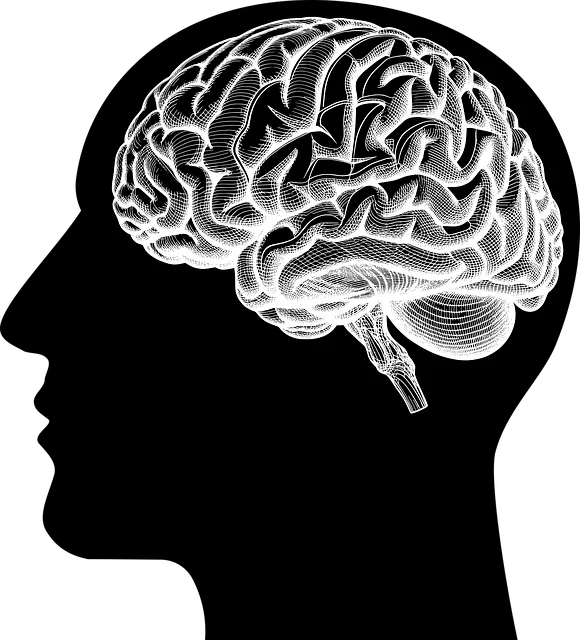Castle Rock Kaiser Permanente prioritizes cultural sensitivity in mental healthcare, addressing disparities through tailored, inclusive services for diverse patients. Their comprehensive approach includes training, initiatives like Community Outreach and Social Skills Training, and programs like the Mental Wellness Podcast Series that incorporate traditional healing practices. By recognizing and valuing cultural contexts, they enhance patient outcomes, foster trust, and create a welcoming environment for underserved communities. Continuous education empowers healthcare professionals to offer empathy-driven, effective care through integrated cultural sensitivity in their work with Castle Rock Kaiser Permanente behavioral health services.
Cultural sensitivity is a cornerstone of ethical mental healthcare, especially within diverse communities. This article explores the vital role it plays in improving patient outcomes and addressing systemic issues. We delve into case studies from Castle Rock Kaiser Permanente’s behavioral health services, highlighting cultural biases that impact care. Through practical strategies, we offer insights on emulating culturally responsive practices, building trust with underserved populations, and the enduring importance of continuous education for mental healthcare practitioners.
- Understanding Cultural Sensitivity: A Cornerstone of Ethical Mental Healthcare
- The Impact of Cultural Bias in Behavioral Health Services: Case Studies from Castle Rock Kaiser Permanente
- Strategies for Culturally Responsive Practice: Empathizing with Diverse Populations
- Building Trust and Overcoming Barriers: Engaging Under-Served Communities in Mental Healthcare
- Continuous Education and Training: Equipping Practitioners for Cultural Sensitivity in Action
Understanding Cultural Sensitivity: A Cornerstone of Ethical Mental Healthcare

Cultural sensitivity is a cornerstone of ethical mental healthcare, ensuring that services are accessible and effective for all individuals, regardless of their background. It involves recognizing and appreciating the diverse beliefs, values, and practices that shape people’s lives, including those related to mental wellness. At Castle Rock Kaiser Permanente behavioral health services, this understanding guides every interaction.
By integrating cultural sensitivity into their practice, mental healthcare professionals can better assess and address the unique needs of patients from different ethnic, racial, and cultural groups. This not only enhances patient outcomes but also fosters a deeper sense of trust and respect. For instance, it might involve tailoring therapy approaches to align with a patient’s cultural traditions or incorporating specific therapeutic modalities that are familiar and comforting to them. Moreover, as organizations like Castle Rock Kaiser Permanente recognize, effective risk management planning for mental health professionals should encompass cultural sensitivity training, ensuring practitioners are equipped to navigate the complex landscape of diverse patient needs in a compassionate and competent manner.
The Impact of Cultural Bias in Behavioral Health Services: Case Studies from Castle Rock Kaiser Permanente

In the realm of mental healthcare, cultural sensitivity is paramount to delivering effective services that resonate with diverse patient populations. The case studies from Castle Rock Kaiser Permanente behavioral health services highlight stark disparities caused by cultural bias. These insights underscore the profound impact of unconscious biases on treatment outcomes, where minority patients often face challenges navigating a system that fails to acknowledge and respect their unique cultural contexts. For instance, a study revealed that certain cultural practices, which are integral to patients’ lives, were either overlooked or stigmatized within the clinical setting, leading to reduced engagement in care and less favorable results.
Addressing these biases requires an intentional approach. Castle Rock Kaiser Permanente’s initiatives, such as its Community Outreach Program Implementation and Social Skills Training, exemplify strategies to foster cultural sensitivity. These programs aim to bridge the gap by promoting mindfulness meditation as a tool for self-awareness and understanding cross-cultural nuances. By integrating these practices, the healthcare provider ensures that services are tailored to meet the specific needs of diverse communities, ultimately enhancing patient satisfaction and outcomes in behavioral health care.
Strategies for Culturally Responsive Practice: Empathizing with Diverse Populations

In culturally sensitive mental healthcare practice, empathy plays a pivotal role in building trust and understanding with diverse populations. At Castle Rock Kaiser Permanente behavioral health services, professionals are trained to recognize and respect unique cultural beliefs, values, and traditions that shape individuals’ experiences of mental wellness. This involves actively listening to patients’ stories, validating their perspectives, and adapting therapeutic approaches to align with their cultural contexts. For instance, integrating elements from ethnic or religious practices into therapy sessions can enhance engagement and foster a sense of safety.
By embracing this empathetic approach, mental healthcare providers at Castle Rock Kaiser Permanente aim to go beyond symptom management. They strive for true healing by addressing the whole person—mind, body, and spirit—as they navigate complex issues like depression prevention and inner strength development through programs tailored to meet the specific needs of diverse communities. This culturally responsive practice not only improves outcomes but also cultivates a more inclusive environment where everyone feels heard and valued.
Building Trust and Overcoming Barriers: Engaging Under-Served Communities in Mental Healthcare

Building trust is a cornerstone when engaging underserved communities in mental healthcare. Many cultural and socioeconomic factors can create barriers to access, such as language differences, historical trauma, and lack of awareness or understanding of available services. At Castle Rock Kaiser Permanente behavioral health services, we recognize these challenges and take proactive steps to bridge the gap. Our Mental Wellness Podcast Series Production offers content in multiple languages, incorporates traditional healing practices, and features diverse voices from the communities we serve.
Through Crisis Intervention Guidance and Coping Skills Development programs, we foster safe spaces for open dialogue and empower individuals with tools to navigate mental health challenges. By adopting these inclusive strategies, we aim to break down barriers and create a welcoming environment where everyone feels seen, heard, and supported in their journey towards improved mental wellness.
Continuous Education and Training: Equipping Practitioners for Cultural Sensitivity in Action

Continuous Education and Training plays a pivotal role in equipping mental healthcare practitioners with the tools to navigate diverse cultural landscapes. At Castle Rock Kaiser Permanente behavioral health services, this commitment is evident through comprehensive programs designed to foster cultural sensitivity. These initiatives ensure that professionals are not only informed about various cultural practices and beliefs but also adept at integrating this knowledge into their daily practice.
By participating in ongoing workshops, simulations, and peer discussions, practitioners can enhance their Emotional Well-being Promotion Techniques and Burnout Prevention Strategies for Healthcare Providers. This holistic approach not only improves patient outcomes but also supports the emotional Regulation of both healthcare providers and their clients, creating a more inclusive and effective therapeutic environment.
Cultural sensitivity is not just a moral imperative; it’s a foundational element of ethical mental healthcare. As evidenced by case studies from Castle Rock Kaiser Permanente behavioral health services, ignoring cultural bias can lead to disparities in care. By implementing strategies like empathizing with diverse populations, building trust in underserved communities, and providing continuous education for practitioners, we can create a more inclusive and effective mental healthcare system that resonates with all individuals, regardless of their cultural background.






